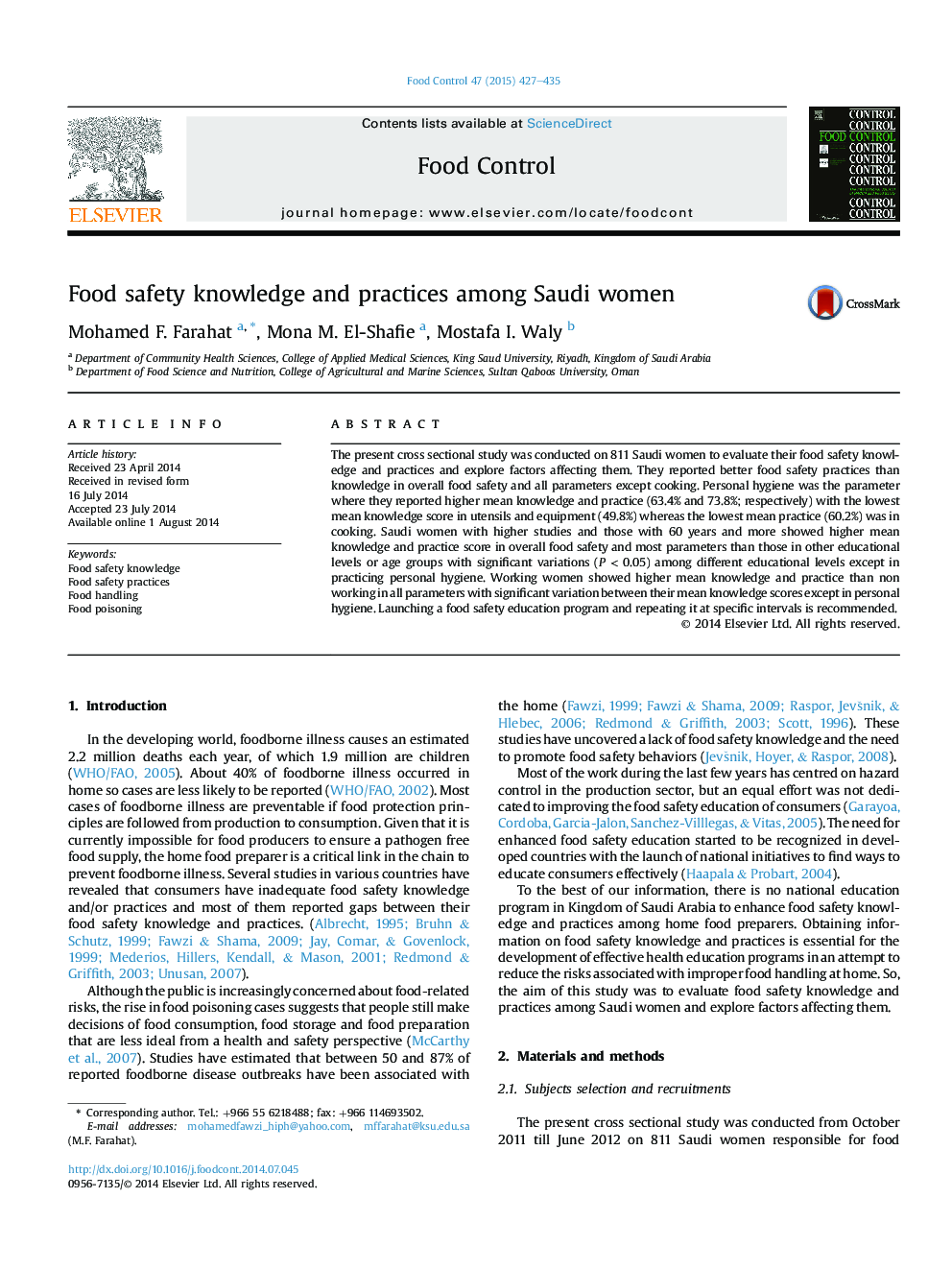| کد مقاله | کد نشریه | سال انتشار | مقاله انگلیسی | نسخه تمام متن |
|---|---|---|---|---|
| 6391448 | 1628415 | 2015 | 9 صفحه PDF | دانلود رایگان |
- Interviewing 811 Saudi women revealed better food safety practices than knowledge.
- Personal hygiene parameter had the highest mean knowledge and practice scores.
- Utensils and equipment had the lowest knowledge and cooking had the lowest practice.
- Women with higher studies reported higher mean knowledge and practice score.
- Working women reported higher knowledge and practice scores in all parameters.
The present cross sectional study was conducted on 811 Saudi women to evaluate their food safety knowledge and practices and explore factors affecting them. They reported better food safety practices than knowledge in overall food safety and all parameters except cooking. Personal hygiene was the parameter where they reported higher mean knowledge and practice (63.4% and 73.8%; respectively) with the lowest mean knowledge score in utensils and equipment (49.8%) whereas the lowest mean practice (60.2%) was in cooking. Saudi women with higher studies and those with 60 years and more showed higher mean knowledge and practice score in overall food safety and most parameters than those in other educational levels or age groups with significant variations (PÂ <Â 0.05) among different educational levels except in practicing personal hygiene. Working women showed higher mean knowledge and practice than non working in all parameters with significant variation between their mean knowledge scores except in personal hygiene. Launching a food safety education program and repeating it at specific intervals is recommended.
Journal: Food Control - Volume 47, January 2015, Pages 427-435
